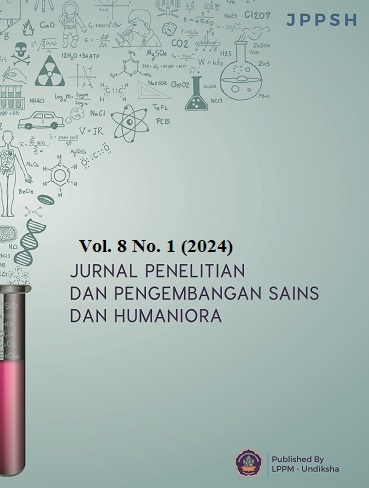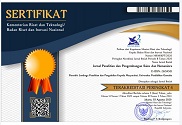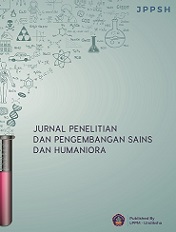Impact of Religion on Sustainable Development in Nigeria
DOI:
https://doi.org/10.23887/jppsh.v8i1.78546Keywords:
Sustainable Development, Religion, Functional AnalysisAbstract
Sustainable development has always been the dream of all levels of society and communities. There is no society or community anywhere in the world that does not aspire and hope for sustainable and lasting development. Therefore, Nigeria as a country has for many years yearned and hoped for sustainable development. This desire for development cuts across the social strata of Nigerian society from food strata, roads, and rural infrastructure to socioeconomic and even political strata. This paper is of the view that religion can be a very powerful tool for achieving sustainable development in Nigeria. This is believed to be the developmental role of religion in any society. If religion (its principles, belief systems, and practices) are applied positively to development in Nigeria, then sustainable development will be realized in Nigeria. This research aims to identify how religious values and teachings can encourage or hinder environmental conservation efforts, social welfare, and sustainable economic growth. The subjects in this research were members of community groups. The research method used is descriptive qualitative. This research implies that religion has great potential to encourage sustainable practices, which means that governments and other stakeholders need to involve religious organizations in development initiatives more actively.
References
Achebe, C. (2018). The Trouble With Nigerianenugu Fourth Dimension Publishers.Chigbo, M. Newswatch, 30(1), 42–55.
Al-Jayyousi, O., & Abdel Gelil, I. (2012). Religion, Ethics, And Sustainability: A Global Perspective. Sustainability, 4(12), 3283–3297.
Asdlori, A. (2023). Pendidikan Islam Sebagai Pilar Pembangunan Berkelanjutan: Peran Sistem Pendidikan Pesantren Dalam Implementasi Sdgs. Jurnal Pendidikan Islam Al-Ilmi, 6(1), 124. Https://Doi.Org/10.32529/Al-Ilmi.V6i1.2530.
Elshifa, A., Perdana, M. A. C., Matiala, T. F., Yasin, F., & Mokodenseho, S. (2023). Analisis Pengaruh Pendidikan, Pelatihan, Dan Dukungan Kelembagaan Terhadap Keberhasilan Usaha Mikro. Sanskara Ekonomi Dan Kewirausahaan, 1(03), 123–134. Https://Doi.Org/10.58812/Sek.V1i03.118.
Firdaus, A. (2024). Inovasi Sosial Di Hutan Wakaf Bogor Dalam Mencapai Pembangunan Berkelanjutan. Jurnal Ilmiah Ekonomi Islam, 10(1), 64. Https://Doi.Org/10.29040/Jiei.V1i1.11918.
Handoko, J. P. S., Kusumawanto, A., Dharoko, A., & Pradipto, E. (2022). Permasalahan Perumahan Mewujudkan Pembangunan Berkelanjutan Di Indonesia. Arsitektura, 20(2), 229. Https://Doi.Org/10.20961/Arst.V20i2.59273.
Hanyfah, S., Fernandes, G. R., & Budiarso, I. (2022). Penerapan Metode Kualitatif Deskriptif Untuk Aplikasi Pengolahan Data Pelanggan Pada Car Wash. Semnas Ristek (Seminar Nasional Riset Dan Inovasi Teknologi), 6(1), 339–344. Https://Doi.Org/10.30998/Semnasristek.V6i1.5697.
Hendrawan, R. (2020). Cash Waqf Link Sukuk For Sustainable Development. Journal Of Islam And Society Study, 3(2), 285–310. Https://Doi.Org/10.24853/Ma.3.
Humaida, N., Aula Sa’adah, M., Huriyah, H., & Hasanatun Nida, N. (2020). Pembangunan Berkelanjutan Berwawasan Lingkungan (Sustainable Development Goals) Dalam Perspektif Islam. Khazanah: Jurnal Studi Islam Dan Humaniora, 18(1), 131. Https://Doi.Org/10.18592/Khazanah.V18i1.3483.
Inayati, A. A., & Mulyawisdawati, R. A. (2024). Harmonisme Sains Dan Agama Dalam Ilmu Ekonomi Islam Menuju Pembangunan Dunia Yang Berkelanjutan. Wawasan: Jurnal Ilmu Manajemen, Ekonomi Dan Kewirausahaan, 2(1), 287–296.
Kayode, J. O. (2014). Understanding African Traditional Religion. University Of Ife.
Mairi, R. (2015). Chambers 21st Century Dictionary. Allied Chambas.
Mubarok, S. (2018). Islam Dan Sustainable Development: Studi Kasus Menjaga Lingkungan Dan Ekonomi Berkeadilan. Dauliyah Journal Of Islamic And International Affairs, 3(1), 129–146.
Mustoip, S., & Al-Ghozali, M. I. (2022). Meningkatkan Pemberdayaan Masyarakat Dan Pembangunan Berkelanjutan : Eksplorasi Kegiatan Dan Produk Rumah Amal Desa Bodesari Pendahuluan Pembangunan Berkelanjutan Dan Pemberdayaan Masyarakat Merupakan Dua Pemberdayaan Masyarakat Dan Pembangunan Berkelanju. 1(1), 31–39.
Omoregbe, J. I. (2013). Ethics: A Systematic And Historical Study. Joja Educational Research Publishers Limited.
Ona N.C. &Ugwu, C. T. O. (2017). As A Panacea For Human Problems.Journal Of Religion And. Human Relations, 1(2), 1–7.
Redclift, M. (2016). Sustainable Development (1987-2005): An Oxymoron Comes Of Age. Sustainable Development, 14(2), 1–9.
Ruhansih, D. S. (2017). Efektivitas Strategi Bimbingan Teistik Untuk Pengembangan Religiusitas Remaja (Penelitian Kuasi Eksperimen Terhadap Peserta Didik Kelas X Sma Nugraha Bandung Tahun Ajaran 2014/2015). Quanta: Jurnal Kajian Bimbingan Dan Konseling Dalam Pendidikan, 1(1), 1–10. Https://Doi.Org/10.22460/Q.V1i1p1-10.497.
Sitorus, P., & Pasaribu, J. (2023). Religious And Sustainability: Studi Integrasi Antara Pentakostalisme, Populisme, Dan Politik. Kurios (Jurnal Teologi Dan Pendidikan Agama Kristen), 10(1), 77–91.
Uche, O. O. C. (2010). The Dynamics Of Religion As A Matrix Of Culture.In. In &Ojih I. (Eds. Okafor N (Ed.), Readings In Nigerian Peoples And Culture. Ngib.
Uche, O. O. C. (2011). Human Development In Africa: A Religious Perspective. Journal Of Religion And Human Relations, 1(2), 1–21.
Uche, O. O. C. (2019). The Socio-Religious Significance Of Taboos In Nigeria. In A. F. &Asomugh. C (Ed.), Readings In African Thought And Culture (Pp. 238–257). Strong Tower.
Zulyanto, A. (2022). Pendidikan Dan Pengentasan Kemiskinan Dalam Pembangunan Berkelanjutan (Sdgs). Convergence: The Journal Of Economic Development, 4(1), 32–40. Https://Doi.Org/10.33369/Convergencejep.V4i1.23385.
Downloads
Published
Issue
Section
License
Copyright (c) 2024 Olusegunajakaye Abraham, Zubair Riskat Abiola, Oladele Taiwo Omolara , Jubril AbdulAzeez

This work is licensed under a Creative Commons Attribution-ShareAlike 4.0 International License.
Authors who publish with the Jurnal Penelitian dan Pengembangan Sains dan Humaniora agree to the following terms:
- Authors retain copyright and grant the journal the right of first publication with the work simultaneously licensed under a Creative Commons Attribution License (CC BY-SA 4.0) that allows others to share the work with an acknowledgment of the work's authorship and initial publication in this journal.
- Authors are able to enter into separate, additional contractual arrangements for the non-exclusive distribution of the journal's published version of the work (e.g., post it to an institutional repository or publish it in a book), with an acknowledgment of its initial publication in this journal.
- Authors are permitted and encouraged to post their work online (e.g., in institutional repositories or on their website) prior to and during the submission process, as it can lead to productive exchanges, as well as earlier and greater citation of published work. (See The Effect of Open Access)










